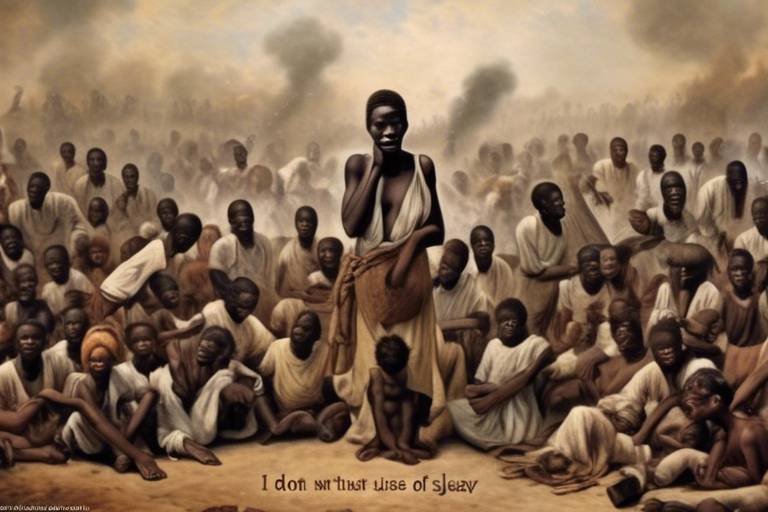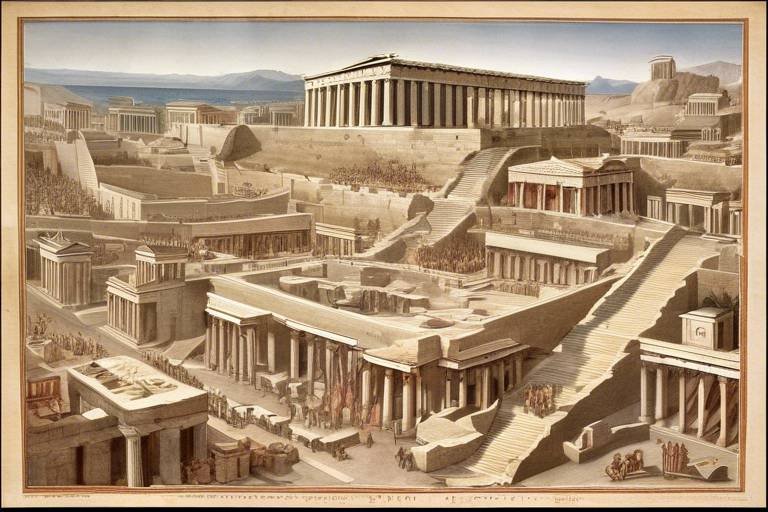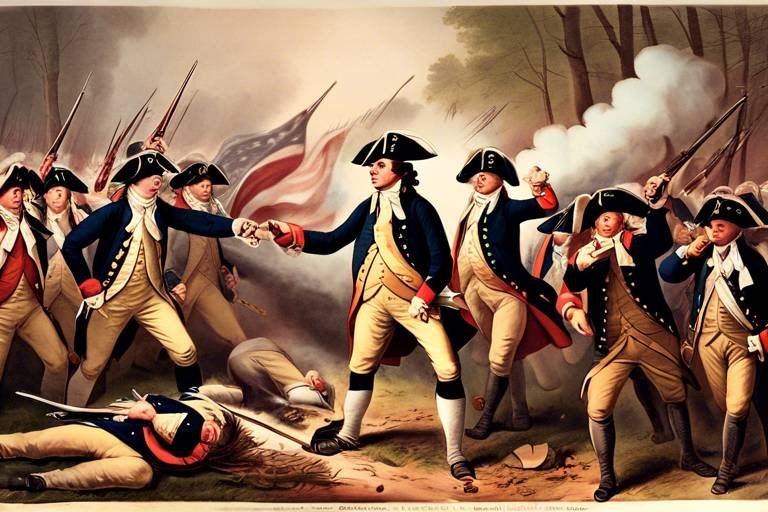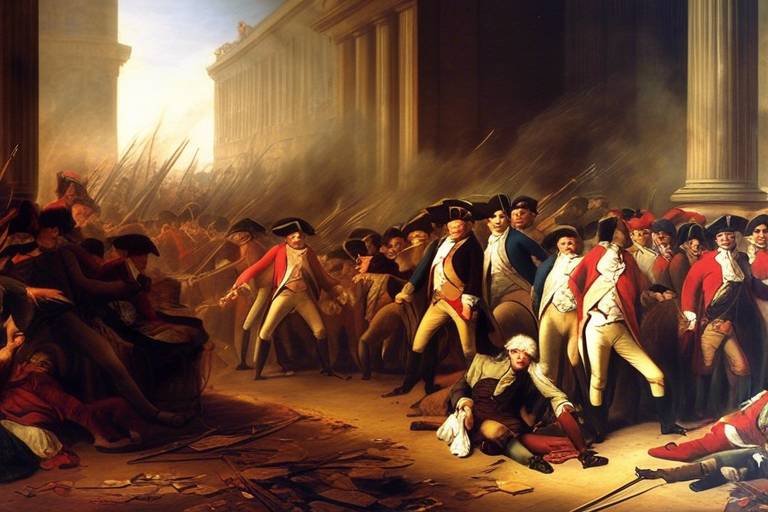The Political Landscape of Ancient Egypt
Ancient Egypt, with its majestic pyramids and enigmatic hieroglyphs, was not only a land of great wonders but also a realm of intricate political structures and power dynamics. The governance of this ancient civilization was shaped by a complex interplay of rulers, administrative systems, and religious beliefs, offering a fascinating glimpse into the pharaohs' authority and the influence of religion on politics.
At the heart of ancient Egyptian politics stood the pharaohs, revered as divine rulers with a direct connection to the gods. Their role extended beyond mere political leadership, encompassing religious duties and rituals that reinforced their divine status. The concept of divine kingship permeated every aspect of governance, shaping the laws, customs, and societal order of the civilization.
The government structure of ancient Egypt was characterized by a hierarchical system that encompassed various officials and bureaucrats. Viziers, nomarchs, and scribes played crucial roles in managing the administration, taxation, and justice system, ensuring the smooth functioning of the state. This intricate bureaucracy was essential for maintaining order and stability across the land.
Military prowess was a cornerstone of ancient Egyptian politics, with warfare playing a significant role in territorial expansion and foreign relations. The strategic military campaigns of the pharaohs not only secured the borders of the civilization but also projected power and influence beyond its borders, shaping diplomatic relations with neighboring states.
The hereditary nature of power in ancient Egypt led to the establishment of powerful dynasties that ruled the civilization for centuries. Succession was a critical aspect of political stability, with each new pharaoh inheriting the throne and the responsibilities that came with it. The continuity of dynastic rule provided a sense of stability and continuity to the governance of ancient Egypt.
Despite the centralized authority of the pharaohs, ancient Egypt also featured a decentralized governance structure that granted autonomy to regional authorities. Provincial governors and local officials managed their regions independently, overseeing local affairs and ensuring the prosperity of their communities. This regional governance system contributed to the overall stability of the civilization.
Ancient Egypt's foreign relations and diplomacy were marked by extensive trade networks, alliances, and cultural exchanges with neighboring civilizations. Diplomatic missions were conducted to foster diplomatic ties, facilitate trade, and promote cultural exchange, enriching the political landscape of the ancient world. These interactions played a crucial role in shaping the civilization's identity and influence on the global stage.
Throughout its long history, ancient Egypt experienced periods of revolution, political upheaval, and power struggles that tested the stability of the civilization. Internal conflicts, revolts, and external invasions posed significant challenges to the pharaohs' authority, leading to moments of crisis and transformation in the political landscape. The resilience of the ancient Egyptians in the face of adversity shaped the evolution of their political institutions.
The legacy of ancient Egyptian politics continues to resonate in modern times, influencing subsequent civilizations and governance structures. The enduring impact of pharaonic rule, the lessons learned from the political landscape of ancient Egypt, and the insights gained from its administrative systems provide valuable insights into the complexities of power and authority. By exploring the political landscape of ancient Egypt, we gain a deeper understanding of the foundations of governance and leadership that have shaped human history.

Pharaohs and Divine Rule
Exploring the governance structures, rulers, and power dynamics that shaped the ancient Egyptian civilization, providing insights into the pharaohs' authority, administrative systems, and the influence of religion on politics.
Examining the concept of divine kingship in ancient Egypt, the role of pharaohs as both political and religious leaders, and how their perceived connection to gods influenced governance.
A central tenet of ancient Egyptian political structure was the belief in the divine nature of pharaohs. They were not just rulers but also considered living gods on earth. This divine rule concept gave pharaohs immense power and authority, shaping every aspect of governance and society. The pharaohs' close association with deities influenced their decisions, policies, and interactions with the people. It was believed that the pharaoh's actions directly impacted the balance of the cosmos, making their rule crucial for the well-being of the entire civilization.
Moreover, the pharaohs served as intermediaries between the gods and the people, ensuring the prosperity and protection of Egypt. Their role as both political and religious leaders was deeply intertwined, with rituals, ceremonies, and offerings playing a significant part in maintaining divine favor and order in the kingdom. The pharaoh's divine mandate justified their absolute authority over the land, resources, and population, creating a hierarchical structure where obedience and loyalty to the ruler were paramount.
As symbols of divine power, pharaohs were revered and feared by the populace, with their actions and decrees believed to have cosmic implications. Their connection to the gods not only legitimized their rule but also provided a spiritual foundation for the political system. The pharaoh's divine essence was reflected in monumental architecture, inscriptions, and art, emphasizing their status as the living embodiment of Egypt's gods and guardians of its eternal principles.
- What was the significance of divine rule in ancient Egypt?
Divine rule was central to the political and religious ideology of ancient Egypt, elevating pharaohs to the status of living gods and emphasizing their absolute authority over the civilization. - How did the belief in divine kingship impact governance?
The belief in divine kingship shaped governance by legitimizing the pharaoh's rule, influencing decision-making processes, and reinforcing the hierarchical structure of society. - What role did rituals and ceremonies play in maintaining divine favor?
Rituals and ceremonies were essential in ancient Egypt to ensure the pharaoh's connection to the gods, secure divine protection for the kingdom, and uphold the cosmic order believed to be maintained by the ruler.

Government Structure and Bureaucracy
Exploring the governance structures, rulers, and power dynamics that shaped the ancient Egyptian civilization, providing insights into the pharaohs' authority, administrative systems, and the influence of religion on politics.
In ancient Egypt, the government structure was highly organized and hierarchical, with various officials playing crucial roles in the administration of the civilization. At the top of the hierarchy was the pharaoh, who held ultimate authority and was considered a divine ruler. Supporting the pharaoh were viziers, who acted as chief advisors and overseers of government affairs. These viziers were responsible for managing the bureaucracy, overseeing the collection of taxes, and ensuring the implementation of laws and policies.
Additionally, nomarchs, who were provincial governors, played a vital role in regional governance and were tasked with maintaining order, collecting taxes, and upholding the pharaoh's authority in their respective territories. The scribes, known for their administrative skills and record-keeping abilities, were indispensable in documenting legal proceedings, tax records, and other important documents essential for the functioning of the government.
The government structure in ancient Egypt was not only focused on administrative tasks but also extended to the justice system. Judges, appointed by the pharaoh, presided over legal disputes and ensured that laws were upheld throughout the civilization. The justice system played a crucial role in maintaining order and resolving conflicts among the populace.
Moreover, the bureaucracy in ancient Egypt was characterized by its efficiency and specialization. Different officials were assigned specific roles based on their expertise, ensuring that the government functions smoothly and effectively. This division of labor within the bureaucracy allowed for the efficient management of resources, implementation of policies, and resolution of administrative issues.
Overall, the government structure and bureaucracy in ancient Egypt were instrumental in maintaining the stability and organization of the civilization, allowing for the efficient governance of the vast territories under the rule of the pharaohs.
Q: How did the government structure in ancient Egypt differ from modern governance systems?
A: The government structure in ancient Egypt was heavily centralized around the pharaoh, who held divine authority, unlike modern democracies with elected officials and separation of powers.
Q: What role did scribes play in the bureaucracy of ancient Egypt?
A: Scribes were essential in maintaining records, documenting legal proceedings, and ensuring the smooth functioning of administrative tasks within the government.
Q: How did the justice system operate in ancient Egypt?
A: Judges appointed by the pharaoh presided over legal disputes, ensuring that laws were upheld and justice was served throughout the civilization.
Q: What was the significance of provincial governors (nomarchs) in ancient Egyptian governance?
A: Nomarchs played a crucial role in regional governance, maintaining order, collecting taxes, and upholding the authority of the pharaoh in their respective territories.

Military and Expansionism
When delving into the military aspects of ancient Egypt, one cannot ignore the crucial role that warfare played in the civilization's expansion and political landscape. The military of ancient Egypt was not only a means of defense but also a tool for territorial conquest and control. Led by skilled generals and strategists, Egyptian armies utilized a combination of infantry, chariots, and archers to secure victories on the battlefield.
The military campaigns of ancient Egypt were not merely acts of aggression but were often driven by the need to protect trade routes, secure valuable resources, and expand the empire's influence. Through successful military expeditions, the pharaohs were able to assert their dominance over neighboring regions, establish vassal states, and strengthen their political power.
Furthermore, military conquests played a significant role in shaping foreign relations and diplomatic interactions with other civilizations. The victories of Egyptian armies not only brought wealth and resources to the empire but also facilitated alliances and trade agreements with neighboring states. The military prowess of ancient Egypt was a key factor in maintaining its position as a dominant political force in the region.
Moreover, the military success of ancient Egypt was not solely based on brute force but also on strategic planning and organization. The Egyptian military hierarchy was well-structured, with clear ranks and divisions responsible for different aspects of warfare. From training soldiers to coordinating logistics, the military apparatus of ancient Egypt was a well-oiled machine that ensured the empire's military supremacy.
In conclusion, the military and expansionist policies of ancient Egypt were integral to shaping the political landscape of the civilization. Through strategic military campaigns, the pharaohs were able to expand their territories, secure valuable resources, and establish Egypt as a formidable power in the ancient world.

Succession and Dynasties
In ancient Egypt, the concept of succession and dynasties played a crucial role in maintaining the continuity of power and stability within the civilization. The hereditary nature of power meant that rulership was passed down through royal bloodlines, with the eldest son typically succeeding the pharaoh. This system of inheritance ensured a smooth transition of power and the establishment of powerful dynasties that ruled Egypt for centuries.
One of the key aspects of succession in ancient Egypt was the divine legitimacy of the pharaohs. The belief that the pharaoh was a god on earth, the son of Ra, the sun god, reinforced the idea of a continuous divine lineage that governed the land. This divine connection not only solidified the pharaoh's authority but also legitimized the succession of the next ruler, ensuring the stability of the political system.
Succession was not always a seamless process, as power struggles and conflicts sometimes arose within the royal family or among powerful nobles vying for the throne. In such cases, political intrigue, alliances, and even military force were employed to secure the succession of the chosen heir. These internal struggles could lead to periods of instability and uncertainty, impacting the governance and direction of the civilization.
The establishment of powerful dynasties, such as the Old Kingdom's Fourth Dynasty or the New Kingdom's Eighteenth Dynasty, marked significant periods of prosperity and cultural advancement in ancient Egypt. These dynasties not only expanded the empire through military conquests but also left a lasting legacy in the form of monumental architecture, art, and religious practices that shaped the identity of the civilization.
Overall, the succession and dynasties in ancient Egypt were integral to the political landscape, shaping the governance structures and power dynamics of the civilization. The continuity of royal lineage, the divine legitimacy of the pharaohs, and the establishment of powerful dynasties all contributed to the enduring legacy of ancient Egyptian politics and the influence it had on subsequent civilizations.

Regional Governance and Local Authorities
Ancient Egypt's governance was not solely centralized in the hands of the pharaohs; it also involved regional governance and local authorities that played vital roles in managing the vast territories of this ancient civilization. While the pharaohs held ultimate authority, they delegated power to provincial governors known as nomarchs who oversaw specific regions. These nomarchs acted as intermediaries between the central government and local communities, ensuring the implementation of policies and collection of taxes.
Moreover, local authorities within each region had a degree of autonomy in decision-making, allowing them to address the unique needs and challenges of their communities. This decentralized governance structure enabled efficient administration at the local level, fostering a sense of ownership and responsibility among the populace. The local authorities, often comprised of influential individuals or noble families, played a crucial role in maintaining order, resolving disputes, and upholding the pharaoh's authority within their jurisdictions.
Additionally, the regional governance system in ancient Egypt included the appointment of overseers and officials to manage specific aspects of local administration, such as agriculture, trade, and infrastructure development. These officials worked in coordination with the nomarchs to ensure the smooth functioning of government services and the equitable distribution of resources across the different regions. The hierarchical nature of regional governance facilitated effective communication between the central government and local authorities, enabling swift responses to various challenges and opportunities.

Foreign Relations and Diplomacy
Foreign relations and diplomacy played a crucial role in shaping ancient Egypt's political landscape. The civilization engaged in intricate diplomatic maneuvers with neighboring kingdoms and empires, establishing trade networks and alliances that influenced both economic prosperity and cultural exchange. The Nile River served as a vital conduit for trade, allowing goods and ideas to flow between Egypt and its foreign partners. Moreover, diplomatic missions were dispatched to foster relationships with distant lands, showcasing Egypt's wealth and power on the international stage.

Revolution and Political Upheaval
Revolution and Political Upheaval in ancient Egypt marked significant periods of turmoil and instability, disrupting the traditional power structures and leading to drastic changes in governance. These upheavals were often sparked by internal dissent, external invasions, or social unrest, challenging the authority of the ruling pharaohs and creating power vacuums that fueled conflicts among competing factions.
One of the most notable instances of political upheaval in ancient Egypt was the Amarna Period during the reign of Pharaoh Akhenaten. Akhenaten's radical religious reforms, including the establishment of Atenism as the state religion, triggered a political revolution that saw the abandonment of traditional deities and the centralization of power in the hands of the pharaoh. This period of upheaval not only reshaped religious practices but also had profound implications for the political landscape of Egypt.
Moreover, the transition from one dynasty to another often resulted in power struggles and internal conflicts as rival claimants vied for the throne. The instability caused by succession disputes and challenges to royal authority could lead to civil wars, weakening the centralized government and creating opportunities for regional governors and military commanders to assert their independence.
External threats, such as invasions by foreign powers like the Hyksos or the Assyrians, also contributed to political upheaval in ancient Egypt. These military incursions not only challenged the territorial integrity of the kingdom but also exposed vulnerabilities in the Egyptian defense system, forcing rulers to mobilize their forces and adapt their military strategies to repel foreign aggressors.
Despite the tumultuous nature of revolution and political upheaval in ancient Egypt, these periods of crisis also spurred innovations in governance, military technology, and diplomatic relations. The challenges posed by internal dissent and external threats forced rulers to enact reforms, strengthen their military capabilities, and forge alliances with neighboring civilizations to ensure the stability and security of the kingdom.

Legacy of Ancient Egyptian Politics
The legacy of ancient Egyptian politics continues to resonate through the corridors of time, leaving an indelible mark on the annals of history. The intricate governance structures and ideologies of the pharaonic era have transcended millennia, influencing subsequent civilizations and shaping modern governance systems. The concept of divine kingship, where the pharaoh was not only a political leader but also a divine figure, set a precedent for the fusion of religion and politics that persisted in various forms across different cultures. This unique blend of spiritual authority with political power laid the foundation for theocracy and autocracy in many societies.
Moreover, the administrative systems and bureaucratic machinery of ancient Egypt, with viziers, nomarchs, and scribes overseeing governance, taxation, and justice, provided a blueprint for efficient state management. The emphasis on central authority and local autonomy created a balance between regional governance and overarching control, a model that inspired future political structures. The enduring legacy of the military prowess of ancient Egypt, with its strategic warfare and territorial expansion, underscored the importance of military strength in shaping political landscapes and foreign relations.
The hereditary nature of power and the establishment of powerful dynasties underscored the significance of royal succession in ancient Egyptian politics, setting a precedent for dynastic rule in other civilizations. The decentralized governance structure, with provincial governors and local authorities managing their regions, highlighted the importance of local governance and autonomy in maintaining stability and cohesion. The diplomatic relations and cultural exchanges with neighboring civilizations showcased the diplomatic acumen of ancient Egypt, influencing the political landscape and fostering cross-cultural interactions.
Despite instances of political turmoil, revolts, and power struggles, ancient Egyptian politics left a lasting legacy of resilience and adaptability. The lessons learned from navigating internal conflicts and external invasions underscored the importance of political stability and unity in sustaining civilizations. The enduring impact of ancient Egyptian political structures and ideologies serves as a testament to the enduring legacy of a civilization that continues to captivate and inspire generations with its political sophistication and cultural richness.
Frequently Asked Questions
- What is the significance of divine kingship in ancient Egypt?
Divine kingship in ancient Egypt was a fundamental belief that the pharaoh was not only a political leader but also a divine intermediary between the gods and the people. This concept granted the pharaoh immense power and authority, shaping the political and religious landscape of the civilization.
- How was the government structured in ancient Egypt?
The government in ancient Egypt was hierarchical, with the pharaoh at the top, followed by viziers, nomarchs, and scribes who managed various administrative functions such as taxation, justice, and record-keeping. This structured bureaucracy played a crucial role in maintaining order and stability in the society.
- What role did military conquests play in ancient Egyptian politics?
Military conquests were essential for territorial expansion and maintaining power in ancient Egypt. The military strategies employed by the pharaohs not only secured borders but also influenced foreign relations and trade networks, shaping the political landscape of the civilization.
- How did royal succession work in ancient Egypt?
Royal succession in ancient Egypt followed a hereditary system where power was passed down from one generation to the next within powerful dynasties. The stability and continuity of the civilization depended on the smooth transition of power from one pharaoh to the next.
- What was the impact of ancient Egyptian politics on modern governance?
The political structures and ideologies of ancient Egypt, particularly the concept of centralized authority and divine rule, have had a lasting impact on modern governance systems. The legacy of pharaonic rule continues to influence concepts of leadership and authority in contemporary societies.



















